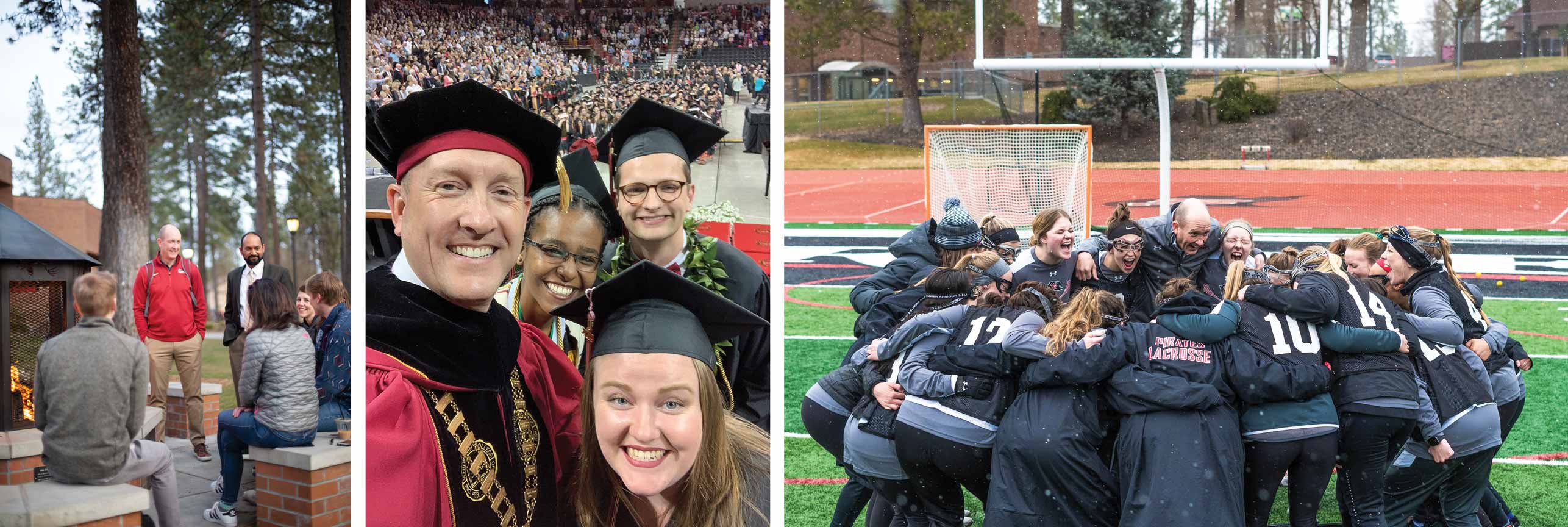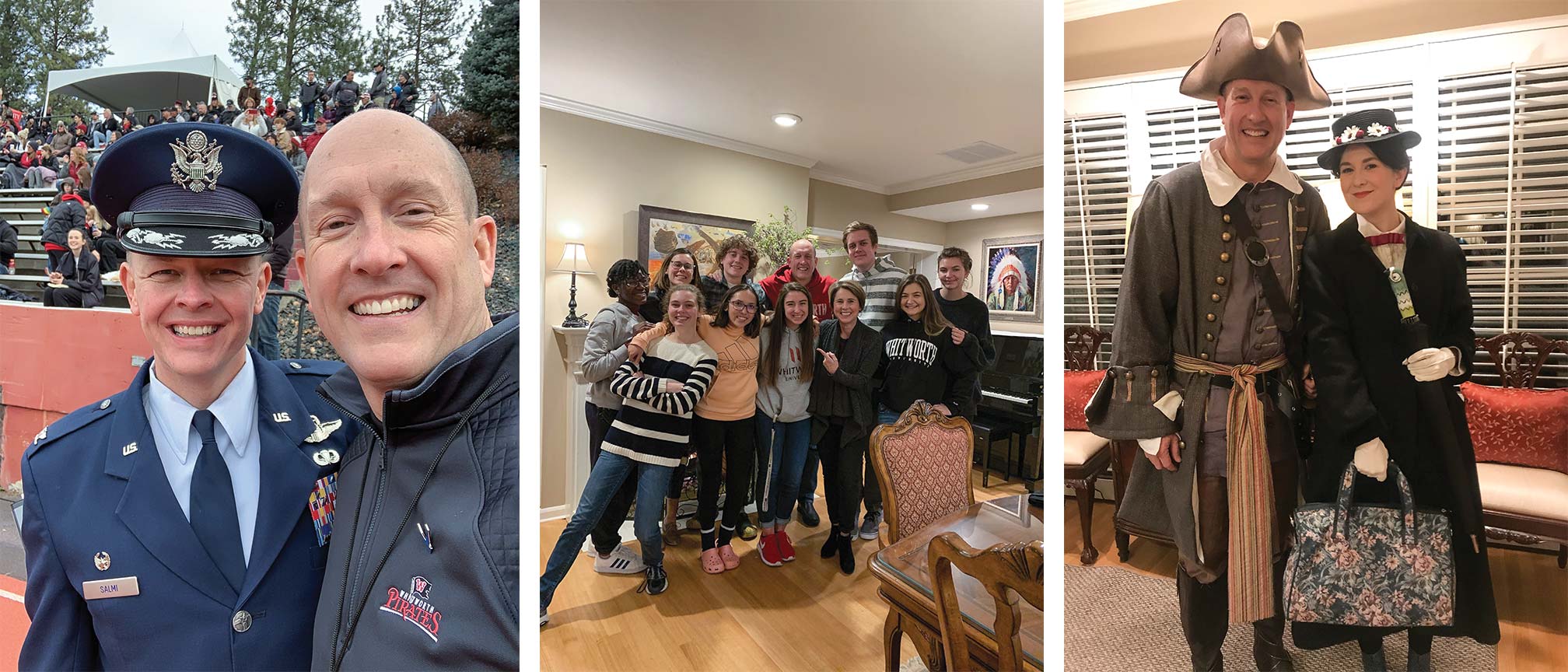
Choosing Gems, Not Costume Jewelry
By Beck A. Taylor
The significant challenges resulting from the COVID-19 virus are affecting all of us, and it's clear that our lives and institutions will take time to recover. But I remain confident that Whitworth's future is bright, and by God's grace this institution we love will serve students with a mind-and-heart education for generations to come.
Next June will be a notable time for the Whitworth community: We will close out and celebrate the successes of the Whitworth 2021 strategic plan and the record-setting Campaign for Whitworth, which, thanks to generous support from so many of you, have empowered and funded our ambitious goals for the university.
As I reflect on my first 10 years serving as Whitworth's president, I am deeply grateful for the Lord's blessings over the past decade and for God's faithfulness throughout Whitworth's 130-year history. Even as I look back, I am also looking ahead to the next decade, which may be among the most important and formative times in Whitworth's storied history. So let me give you a framework from which to consider Whitworth's future.
This framework starts with a parable by philosopher Søren Kierkegaard, who wrote of two robbers who broke into a jewelry store. But instead of stealing valuables, they exchanged the tags on high-priced gems with low prices and placed high prices on mere costume jewelry. For weeks afterward, customers unwittingly paid too much for cheap jewelry and very little for gems of great worth. Kierkegaard's point? "The people of my day have no ability to tell the truly valuable from the virtually worthless."

Sadly, this parable reflects today's culture. As St. Augustine reminds us, human beings are hard-wired to love. But our world's fallen state and our own sinful nature cause us to give priority to what we shouldn't love and to despise what is worthy.
One role of a Christian liberal arts education, perhaps even the central role as we consider Whitworth's future, is to call us back to those things worthy of our love – the good things that align with God's priorities.
But, you might wonder, what role does academic excellence play in this future? Or professional preparation? Or leadership training? These have always been the elements of a Whitworth education, and they always will be. But in what context, with what worldview, through what lens will we pursue these important priorities?
When a Whitworth epidemiologist finds a rare but expensive medical treatment for a debilitating illness, how will she navigate justice issues as treatments are priced to various socioeconomic populations in the marketplace?
Or how will a Whitworth historian analyze and articulate volatile and complex social issues in a way that contributes an accurate, nuanced and unbiased account?
Or how will a Whitworth business graduate honor his company's stakeholders with a healthy profit margin and also contribute to the common good of his community without taking advantage of natural resources and public trust?
Here's my point: We want to produce scientists and engineers and teachers and politicians who are not only good at what they do, but who also think critically and choose wisely as they honor God, follow Christ and serve humanity.
As we chart a path into Whitworth's future and evaluate the kind of education our students need to address the world's complexities, we will start by seeking answers to questions that are both ancient and modern. They are so fundamental and so important that ancient philosophers called them the "transcendental" questions of life.
What is good?
What is true?
What is beautiful?
By seeking what is good, true and beautiful, Whitworth's graduates will not only be skilled at what they do, but they will lead and serve with moral courage, intellectual competence and heartfelt compassion.

The answers to "What is good?" lie within a deep understanding and grasp of the virtues we elevate – the moral, ethical, intellectual and spiritual virtues we expect our graduates to embody.
The answers to "What is true?" will address academic preparation and opportunities for our students to explore and understand God's creation through the transformation of the mind.
And the answers to "What is beautiful?" will allow us to define what compels, inspires and motivates us through the arts and through service to others. Beauty is at the intersection of goodness and truth. This nexus can shape the lives and interests of our graduates and through them transform culture and society.
By seeking what is worthy of our love – the good, the true and the beautiful – Whitworth will continue to provide students with a genuinely valuable education. One that combines a rigorous and open intellectual experience within a community that chooses the person, the work and the priorities of Jesus Christ.
This story appears in the spring 2020 issue of Whitworth Today magazine.
Join Beck in a city near you! This fall, Beck will kick off a nationwide tour, hosting free alumni gatherings where he will reflect on Whitworth's past and future and will interview a local alum. For details go to www.whitworth.edu/beckandcallingtour.